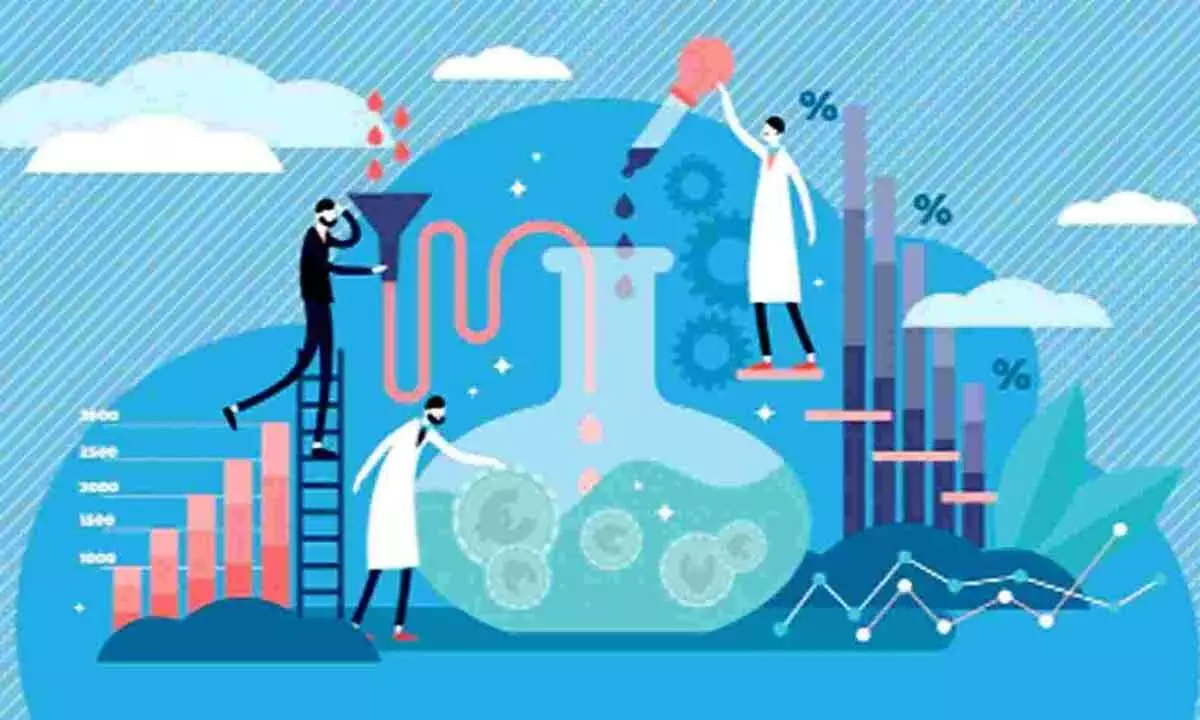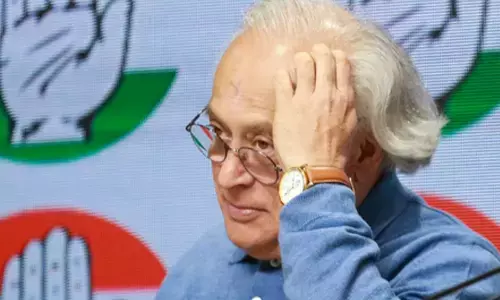Culture of experimentation key to future growth

Experimenting before rolling something out grandly is a choice worth consideration
"Innovation is the unrelenting drive to break the status quo and develop anew where few have dared to go" - Steven Jeffes
Innovation has always been a function of new ideas and creating value out of that novel thinking. While the former is obviously a matter of ideation and brainstorming, the process of value creation is where experiments come into play. Unless a product or service is tested, the efficacy of an endeavour cannot be assessed and this makes experimenting before rolling something out grandly a choice worth consideration. Simultaneously, experiments mean that innovation is not a close-ended project, but a dynamic and alive process with limitless possibilities of expansion and renewal.
Experimentation is often a plunge into the unknown, which might make several actors reluctant to try new things out. However, if the uncertainty is a disincentive, it is worth noting that nothing extraordinary ever came out of a place of familiarity. Persisting with experiments has its own rewards and a transformative potential that translates into incredible success. Experiments, in fact, form the bedrock of putting a scientific temper, or a genuine spirit of enquiry into action. Stefan H Thomke, the William Barclay Harding professor of business administration at Harvard Business School writes in his book, "Experimentation works: The Surprising Power of Business Experiments."
"Thinking and acting scientifically has had an enormous impact on the world. For centuries, we've built and organized scientific and technological knowledge through testable explanations and predictions. These, in turn, have given us modern medicine, food, energy, transportation, communication, and so much more. The engine that has powered the scientific method is the humble experiment."
Innovation can be counterweight to stagnation through the act of experimenting, which allows changing meaningfully with the times and the demands of customers and clients. It makes space for embracing necessary failure, practising damage control and averting disasters through testing alternatives and for comprehending genuine feedback. In all senses, it is an evolutionary, incremental and transformation-centric way of carrying out work and imagining new horizons of accomplishment.
It is significant to understand that experimenting is fundamentally linked to an endeavour towards knowledge. Testing your idea or product or service, based on whatever knowledge you hold is a way to know more, to understand what works and what does not, and why. Today, with the efficacy of the internet, this action-driven pursuit of knowledge can know no bounds. The internet allows relatively inexpensive avenues for conducting experiments online and as data shows, Microsoft, Amazon, Booking.com, Facebook, and Google each conduct more than 10,000 online controlled experiments annually, with many tests engaging millions of users.
The need of the hour is to integrate a culture of experimentation into the everyday workings of companies. Even as we take risks and venture into the unknown, it is a good idea to do with a specific budgetary allocation. At the same time, all endeavours to try new things out must be backed by requisite data and research, and experiments should be conducted ethically. For example, as Harvard Business Review reports, when Amazon launched a new version of the game Air Patriots, the development team was taken aback by the response.
The seven-day user-retention rate dropped by an astonishing 70 per cent, and revenue fell 30 per cent. The team discovered that it had inadvertently increased the game's difficulty by about 10 per cent. Amazon quickly shipped a fix, but the developers wondered if making the game easier could produce large gains in retention and revenue. To find out, they ran a test with four new levels of difficulty, in addition to a control, and learned that the easiest variant did the best. After some further refinements, Amazon launched a new version - and this time users played 20 per cent longer and revenue increased by 20 per cent. An accident had led to a surprising insight, which became the starting point for new experiments.
The aforementioned case study elucidates the necessity of premising experiments on a judicious investment in learning through data, while taking care of the company's reach and resources. When knowledge takes centrestage, experiments become all the more meaningful and the stride to greater heights more rewarding. Since everything is seen as an opportunity to learn in an experimental work culture, every setback is an event to open-mindedly figure things out and weave together new success stories.
To sum up, experimenting is an exercise in self-assessment and awareness for companies, which drives innovative upsurges through an investment in knowledge and action. It is preparedness for progressive futures, undaunted dynamism to take risks and learn unabashedly and most importantly, reap the utmost benefits of human creativity and purpose. If noted scientist Alan Kay remarked that the best way to predict the future is to create it, experimenting shall play a most crucial part in any such creative process.
(The author is Chief Impact Officer at Recykal Foundation)








